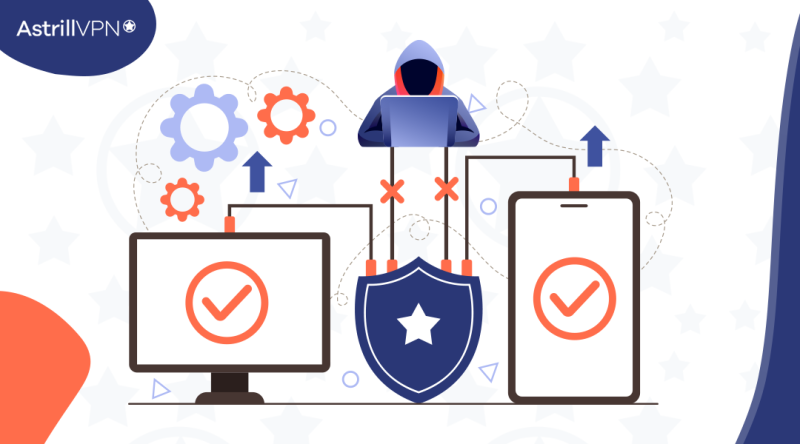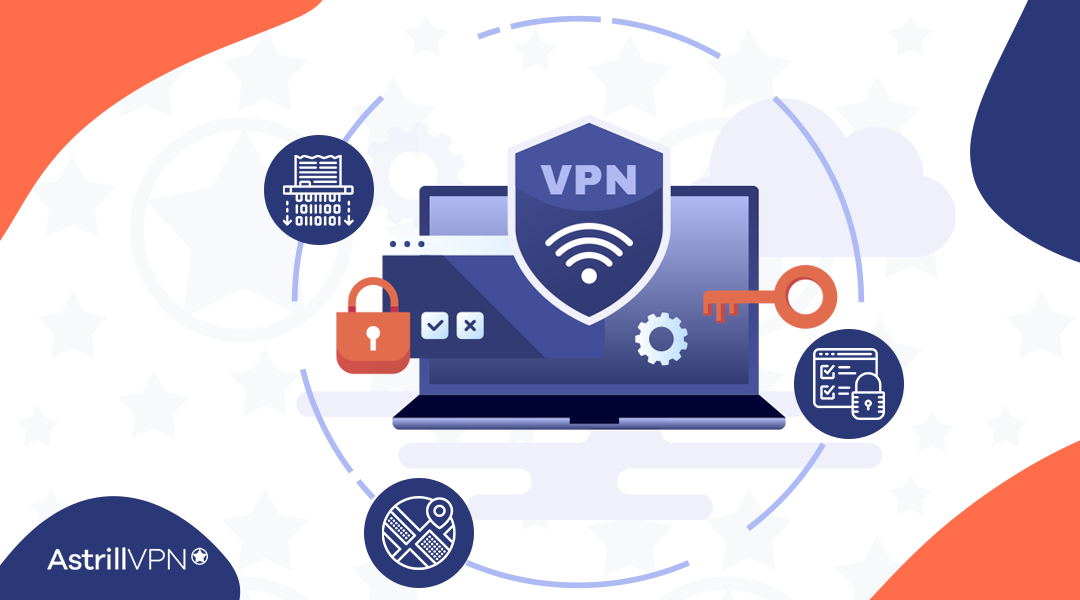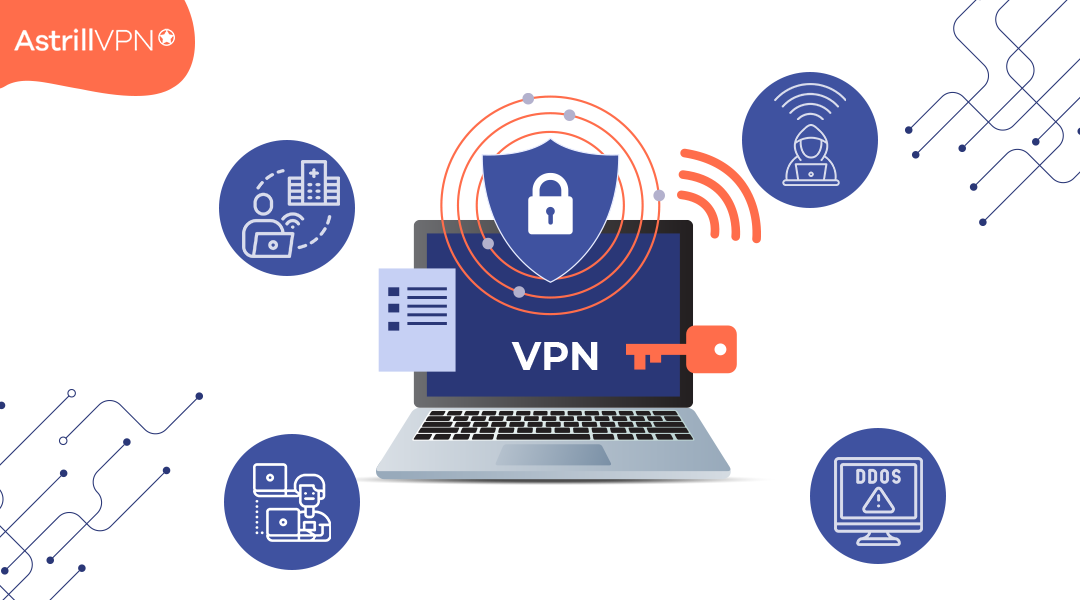Taking Precautions: Do VPNs protect you from hackers?

Bisma Farrukh

Cybersecurity is a trendy topic these days, with hackers finding ever-more sophisticated ways to access our data and make off with it. As technology marches, the risk to our personal data is ever increasing. Taking a few basic steps can help protect you and keep your information safe.
One of the important steps you can take is to use a virtual private network (VPN). In this article, we’ll talk about how a VPN can help protect you from malicious actors online and offer some tips on how to get started using one. We’ll also discuss other safety precautions you can take to make sure your online presence remains secure.
Table of Contents
What Is a VPN and How Does It Work?
A VPN is like an extra layer of protection for you and your online activity. It works by encrypting the data you transmit through the internet into a secure tunnel, making it virtually impossible for hackers to access.
The three main elements of a VPN are encryption, authentication, and data integrity. Encryption ensures that any information you send online is secure and private. Authentication makes certain that only authorized users can access the network. Data integrity ensures that data sent over the network is intact meaning it’s not tampered by anyone in between you and your destination.
In addition to this added layer of security, a VPN can also help you access restricted websites in certain countries. Whether you want to protect yourself from hackers or unblock content, a VPN can offer you peace of mind while browsing online.
Different Types of VPNs and Their Benefits
When it comes to protecting yourself from hackers, there are several different types of VPNs (Virtual Private Networks) you can choose from. Knowing the difference between them and their benefits can be the difference between safety and leaving yourself vulnerable.
- The most popular type of VPN is the remote-access or personal one. This type of VPN allows you to safely access public WiFi networks and encrypt your internet traffic from potential hackers. They also offer low latency, meaning your connection will remain fast and efficient while keeping you safe.
- Another option is the site-to-site VPN which connects two distinct networks, like a company’s internal network with its external customers or remote offices. It’s especially useful in business settings where workers must securely access confidential information while in the field or working remotely.
- The last option is the mobile VPN, which offers secure data encryption for cell phone users who use their phones for work or handle sensitive information daily. It also helps protect your data when using public hotspots, so you’re not at risk of compromising your private information by an unsecure network connection.
How Does a VPN Protect You From Hackers?
Using a VPN can help protect you from cyber-attacks and malicious hackers by providing another layer of security to your computer system. Find out the four key VPN features for protection
1. Hide Your IP Address
When you connect to the internet, your IP address acts as your unique identifier. A VPN replaces your IP address with one assigned by the VPN provider, hiding your actual IP address from websites and others on the internet. This makes it difficult for hackers to track your location and online activity.
2. Encrypt Your Internet Traffic
A VPN creates an encrypted tunnel for all your internet traffic to pass through. This encryption makes it nearly impossible for hackers to intercept, read and manipulate your data as it travels between your device and the VPN server. Even your internet service provider can’t see the contents of your encrypted data.
3. Secure Your Public Wi-Fi Connections
Public Wi-Fi connections, like those at coffee shops and airports, are very insecure. A VPN encrypts all your data before it leaves your device, securing your connection even on public networks. This prevents hackers from stealing information like passwords, banking details and other sensitive data transmitted over the insecure connection.
4. Avoid Phishing and Malware Attacks
Hackers often use phishing scams and malware to gain access to users’ personal information. A VPN can help protect you by making it difficult for these threats to identify you as a target in the first place.
A VPN protects you from hackers and online threats by hiding your IP address, encrypting your internet traffic, securing public Wi-Fi connections and making it harder for phishing and malware attacks to target you. Using a reputable VPN provider such as Astrill is a simple but effective way to boost your online security and privacy.
Benefits of Using a VPN for Security
When it comes to security, one of the best defenses you can have on the internet is a VPN. Here are some of the benefits of using a VPN for security.

Increased privacy and anonymity
When you use a VPN, your online activity is encrypted meaning that your data is secure and your online privacy is guaranteed. In this way, hackers won’t be able to access your information or your activities online provided that you use a reputable VPN provider.
Enhanced data protection
A VPN provides an added layer of security by ensuring that all of your data is securely transmitted over the internet, even when you’re connected to public networks. This helps keep hackers out since they won’t be able to intercept any information sent through a secure connection.
Accessing geo-blocked content
It allows you to access content that might otherwise be blocked due to geographical restrictions, such as streaming services like Hulu. If you want to watch movies while traveling abroad or play video games while on vacation, then a VPN can help ensure that you get access to all the content available in your home country.
Tips on Making Sure Your VPN Is Secure
Protecting yourself from hackers is easier said than done, but using a VPN can definitely help. Here are a few tips to make sure that your VPN is as secure as possible.
Check Your Location
When you connect to a VPN make sure that you’re connecting to a server in the right geographical location. Cybercriminals have been known to pretend to be servers in popular countries like the United States, Canada, or Australia, so it pays to double-check which server you’re connected to.
Update Regularly
It’s important to keep your VPN provider up-to-date with the latest version so that it can stay ahead of any potential cyberattacks. Be sure to choose a reputable provider who actively monitors their network for security threats and updates their software regularly.
Safeguard Your Data
Make sure your data is secure by only connecting through your VPN. This will help keep your information safe and out of the hands of hackers and other malicious actors. If you’re ever unsure about the security of your connection, you can always contact customer service for more information.
Privacy policy
Check the privacy policy of your VPN provider. You want to ensure your data isn’t sold or shared with third parties. Astrill VPN is one of the best VPNs with no logs policy, and the best part is that they can’t even view which clients access websites even if they want to. Its unlimited bandwidth, unlimited speed, 24/7 customer support and several VPN protocols make it the No.1 choice for customers.
From which Cyberattacks can’t a VPN Prevent me?
Despite all the protection VPNs can provide, there are some cyber attacks they can’t protect you from. This isn’t because of any fault on their part, as they’re designed to protect your data and identity online. It’s because they aren’t designed to detect, deflect or prevent specific types of malicious activities.
- VPNs can protect your data and communication when you’re connected to public WiFi networks, but they won’t stop a hacker from getting access to your device if you make careless mistakes. We’re human after all. Mistakes do happen. This is why it’s always important for you to remember to be aware of what you download or click on a website, especially when it’s something unfamiliar or suspicious.
- Another thing a VPN won’t protect you from is malware, spyware or phishing attempts. All these malicious operations require special software or antivirus programs that are designed with the goal of identifying threats before they compromise your device. A VPN will keep all data secure once it’s inside the tunnel but it won’t stop malicious software or hackers from accessing it in the first place.
In what situations does a VPN protect you?
When it comes to “do VPNs protect you from hackers?” there are a few situations where a VPN can provide an extra layer of security.

Man in the Middle Attacks
Man in the middle (MitM) attacks are one of the most common types of cybercrime where a hacker intercepts communications between two parties. With a VPN, all your data is encrypted, giving you much-needed privacy and making it harder for hackers to intercept your information.
DDoS Attacks
A distributed denial-of-service attack (DDoS) happens when hackers use multiple systems to flood a target with malicious traffic. With its encrypted data connections, utilizing a VPN can help mitigate this type of attack and keep your data secure.
Fake Wifi Hotspots
Public wifi is convenient but, unfortunately also risky as it could be infiltrated by an attacker posing as a legitimate hotspot. With a VPN, you can create your own secure connection when using public wifi, ensuring that all your data is encrypted and protecting you from potential man in the middle attacks.
Remote Hacking
Using a Virtual Private Network (VPN) helps protect against remote hacking into devices or networks. By encrypting communications between networks and devices, it’s significantly more difficult for hackers to gain access through the so-called “backdoor” in weakly protected networks that use traditional security protocols.
Can VPN be Hacked?
While a VPN provides an added layer of security and privacy, it’s not impossible for a determined hacker to gain access to your data. Here are some ways a VPN could potentially be hacked:
The VPN provider itself
If a VPN provider has poor security measures or is malicious, they could gain access to your data as it passes through their servers. You have to trust that your VPN provider is secure and honest.
Vulnerabilities in the VPN software or protocol
No software is completely bug-free, and hackers may find vulnerabilities they can exploit to gain access. VPN providers work hard to patch vulnerabilities, but new ones do occasionally emerge.
Guessing or cracking your VPN login credentials
If a hacker can guess or crack your username and password for the VPN, they could gain access to your VPN connection and see your data. Using strong, unique passwords and two-factor authentication can help prevent this.
Targeting your home network
Even though you’re using a VPN, if a hacker can gain access to your home network they may be able to see your internet traffic before it reaches the VPN. Make sure your home WiFi is password protected and your router is secure.
Overall, VPNs do provide a major boost to your online security and privacy. But you still need to take steps to minimize vulnerabilities and choose a reputable VPN provider. With the right precautions and some common sense online habits, the chances a hacker can access your data through a VPN remain fairly low. But it’s not impossible, so a layered security approach is always best.
Does a VPN protect you from DDOS?
A VPN, or virtual private network, can provide some protection against DDoS attacks. However, it is not a complete solution and additional measures may be needed.
When you connect to a VPN, your IP address is hidden and all your internet traffic is routed through the VPN’s servers. This means that anyone trying to launch a DDoS attack would have to target the VPN provider’s servers instead of your personal IP address.
- Since VPN providers have more robust infrastructure and security measures in place, their servers are generally better equipped to handle DDoS attacks. However, if the attack is large enough, it could still cause issues for the VPN’s network.
- Using a VPN does make it more difficult for someone to find your personal IP address and target you directly for a DDoS attack. But a determined attacker could still figure out your identity through other means and work around the VPN to attack your connection.
- To better protect against DDoS attacks, VPN providers may employ additional security tools like DDoS mitigation services. These use techniques like IP filtering, traffic inspection and routing, and bandwidth limiting to detect and block DDoS traffic before it reaches the VPN’s network or your connection.
- A VPN alone only provides some level of protection against DDoS attacks by hiding your IP address. For the best security, look for a VPN provider that also offers dedicated DDoS protection services and robust infrastructure to handle large attacks. Even then, there are no guarantees – a truly massive DDoS attack may still cause issues. A multi-layered security approach is typically the best defense.
FAQs:
Now that you know all about how a VPN protects from hackers, you may have some additional questions. Here are the top questions you may have.
Q: What are the first signs of being hacked?
If your computer is suddenly running slower than usual or if your internet browser’s homepage and search engine settings have changed without any intervention from you, these can both be signs that someone has gained access to your system. You should also be wary of receiving strange emails or pop-up messages.
Q: Has AstrillVPN ever been hacked?
No , AstrillVPN has a strict policy of never storing any logs or data of any kind, so there is nothing stored in their servers for a hacker to access. The company strictly follows industry best practices and regularly audits their networks for possible breaches.
Q: Do you need antivirus if you have a VPN?
Yes, While a VPN can protect your data from external hacking attempts, an antivirus will also help protect against viruses and malicious software that can find their way on to your device. Having both an antivirus software and a VPN is the best way to protect yourself online.
Q: What do hackers target the most?
Hackers regularly target individuals through phishing scams which use emails and other communications platforms to steal passwords or personal information. It’s important to be aware of any suspicious emails that ask for personal details or money transfers because these could be red flags for being hacked.
Conclusion
With so much of our lives taking place online, taking the necessary precautions to protect ourselves is essential. A VPN is a valuable tool for doing so and can keep your data safe from hackers. Using a VPN to protect yourself is far easier than attempting to outsmart cybercriminals. Just make sure you do your research when deciding which VPN to use, and always double-check to make sure that it’s properly activated before going online.

No comments were posted yet